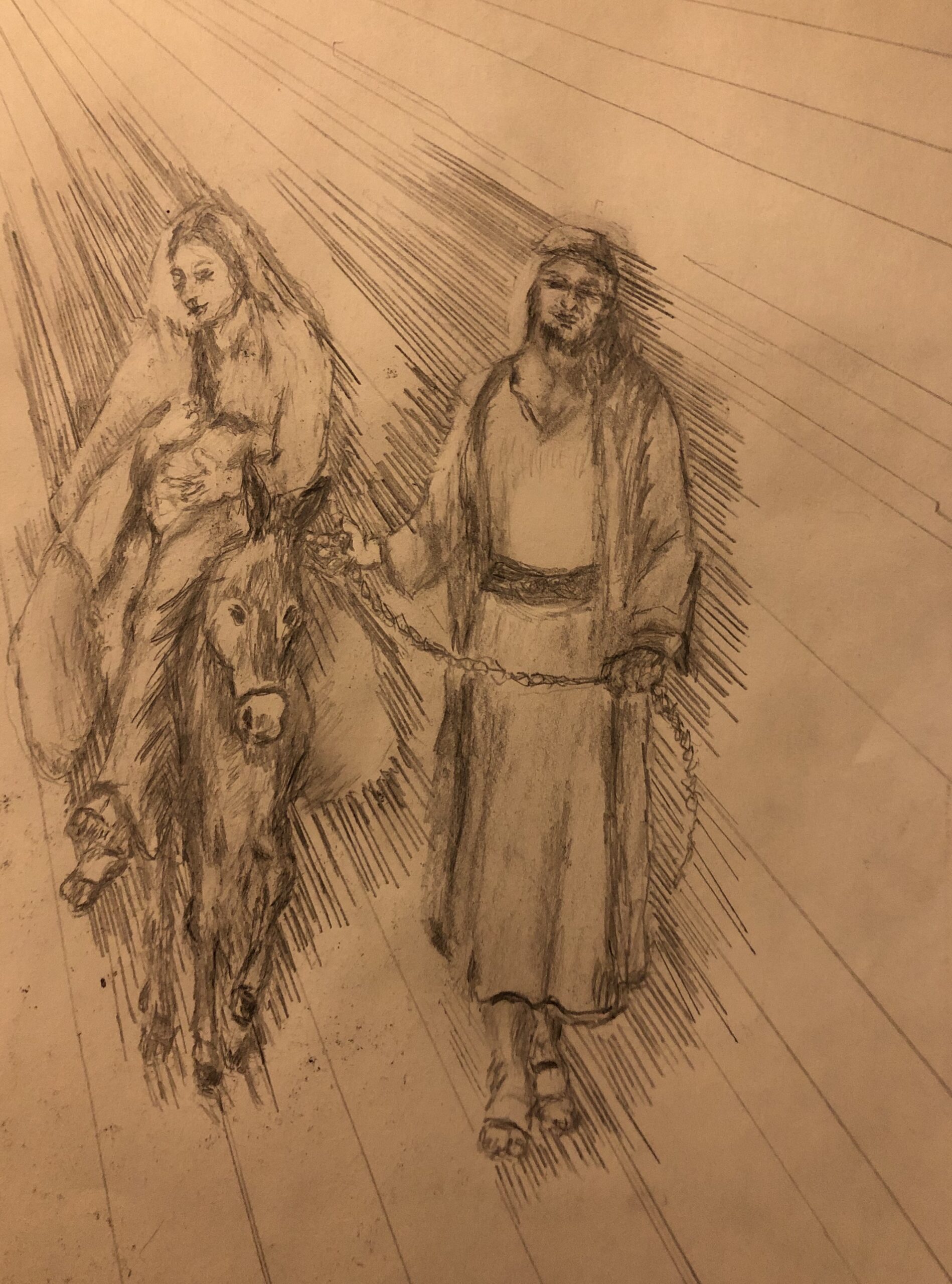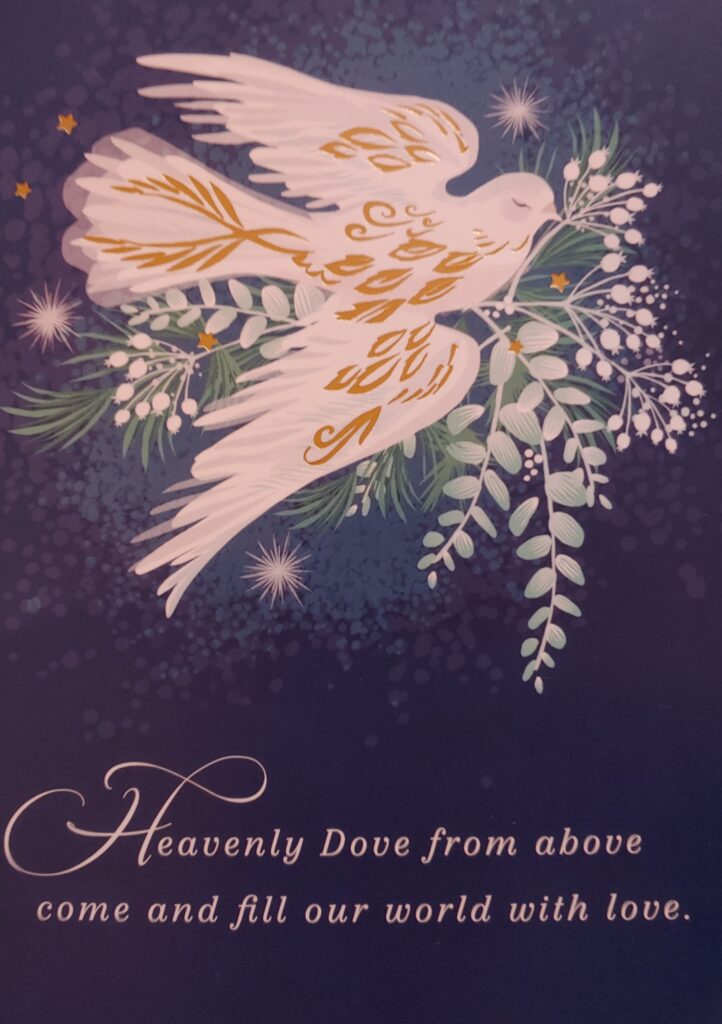Daily Readings: Isaiah 52:7-10; Psalm 98; Hebrews 1:1-4(5-12); John 1:1-14
How beautiful upon the mountain are the feet of the messenger who announces peace, who brings good news, who announces salvation, who says to Zion,” Your God reigns.” Listen! Your sentinels lift up their voices, together they sing for joy; for in plain sight they see the return of the Lord to Zion. Break forth into singing, you ruins of Jerusalem; for the Lord has comforted his people, he has redeemed Jerusalem. The Lord has bared his holy arm before the eyes of all nations; and all the ends of the earth shall see the salvation of our God. Isaiah 52:7-10, NRSV
O sing to the Lord a new song, for he has done marvelous things. His right hand and his holy arm have gotten him victory…make a joyful noise to the Lord, all the earth; break forth into joyous song and sing praises…let the sea roar, and all that fills it. Psalm 98:1, 4, 7a, NRSV
In ruminating on my blog post this year, I asked myself: what message do I want to hear? It’s the same message I think everyone worldwide wants to hear. Whether true or likely or not true or likely, we want to believe there are reasons for all the current strife, that it will eventually end, and that most of us will be alright.
I looked to my Scripture choices for confirmation of this promise and what I found were strong verbs, auditory imagery, and nature personification. But, with judicious excerption, I discerned a theme that appealed to me and seemed to answer the question above.
To further flesh it out, at least for myself personally since I happen to be reading the following two books and getting a lot of out of each, I compared the state of the world in 1944-45 that Dr. Eva Eger, current 96-year-old psychologist and former Auschwitz and Mauthausen concentration camps and death march survivor, writes about in her memoir The Choice: Embrace the Possible. Certainly times then felt catastrophic, apocalyptic. Even in the most horrific of circumstances, however, Eger argues (inspired by her mentor Victor Frankl) that we have a choice on how to respond. Faced with torture and death people can despair or can find hope.
The other book currently rocking my world is Breath: The New Science of a Lost Art by James Nestor. He is an engaging science writer and puts the whole history and current practice of respiration into an understandable perspective. I’ve never thought so much or so deeply about nose vs. mouth breathing, why exhales and CO2 are more important in many ways than inhales and O2. And much more. I now understand why I’ve experienced some of the respiratory issues I’ve had over the years and what I can do to mitigate having more in the future.
To merge these texts with the Biblical verses referenced above is an easy jump for me. There is no lifting up of voices or singing, certainly no shouting or roaring or doing anything for joy if I struggle to breathe. No breaking forth! All involve not only an inner attitude of exultation but also the impulse and ability to show it in loud and forthright ways.
In the face of wars and hate how can I even feel like praising unless I take back control of the narrative? Instead of allowing external events to dictate my mindset, how much more desirable and healthy is it instead to control my inner response to troubling current events? Experiencing peace and happiness is our privileged inner choice, if not for immediate dire occurrences but as a way of affirming the future. Eger had no way of honestly knowing she would survive the war let alone go on to marry, have three children, earn a doctorate degree, and help thousands of other people. None of this was without intense struggle and much courage to face the traumas she endured, but, in the end, everything was alright in that she lived and thrived.
In writing this post I hope I’ve said enough to encourage you to obtain and read these two books yourself. They have, in quite different ways, provided me with inspiration and hope at this time in our world’s desperate history. I am doing breathing exercises to rehab my diaphragm and choosing to believe in the spirit of this holiday season that there is hope for better days to come.
Welcome, welcome, God-With-Us!
Offered by Jill Fredrickson




